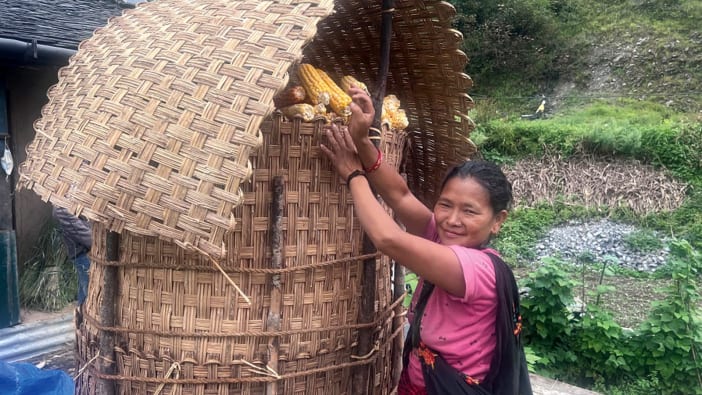by Martha Carlough.
The community health staff of United Mission to Nepal’s Okhaldhunga Health Project began new work in four villages last year. These villages were chosen carefully, based on a balance of needs and resources in the communities.
What were we offering?
Over a period of nine months, we spent much time and effort getting to know the communities, using participatory rural appraisal (PRA) methods. Small teams of staff worked in each village: mapping resources, prioritising needs, interviewing informants and building rapport with the community. We gained lots of information. We helped villagers recognise their own strengths. Community members seemed enthused and committed to working with us. Yet as I sat at a closing ceremony where results of the PRA were being shared, a village woman asked me why we had brought an empty doko to her village. Were we, like those who had surveyed in other places, just filling our own baskets and notebooks? Just what were we offering that would make a difference in the village, and why had we not made that clear from the beginning?
What did we want?
Following the basic principles of PRA, our staff had tried very hard not to take over the process of prioritising and planning. We listened to community voices, collected data, and organised ideas. But while doing this, we had not clearly talked about what we were willing to do, and what the future of the partnership between the community health staff and the village could be like. We had brought only an empty doko. Participation is much more than a set of tools, or a democratic process of empowerment. Participation is partnership. We all come with agendas that need to be made clear, discussed, and are open to change as we link hands to work with communities.
Participatory rural appraisal has become a key component of all kinds of development work. It is a stamp of approval that the work is ‘bottom up’, democratic and empowering. But agendas are still often developed outside communities and PRA serves to raise expectations that can’t be met within the limitations of staff and funding in the programmes we work for.
The agenda of Jesus
As Christians in development, we have agendas. We cannot pretend otherwise. Jesus Christ had an agenda in his dealings with people. He met them where their needs were – with physical healing, food and water, words for personal growth – but his ultimate agenda was to direct them towards salvation. Jesus practised PRA as he empowered people to recognise their own needs and gifts and to partner with him. He performed community diagnosis and determined where and when his words would be most effectively utilised – in the marketplace, in the synagogue, by the lakeside. He did not offer an empty doko, and neither should we. It would be wise to follow his example in being open about what we stand for, and what we can offer. Our challenge as Christians involved in health and development, and engaged in participatory work, is to be clear about what we believe and can offer, while at the same time addressing needs, identifying strengths and partnering with communities for sustainable change.
Martha Carlough is the Project Director of the Okhaldhunga Health Project. Her address is United Mission to Nepal, PO Box 126, Kathmandu, Nepal.









